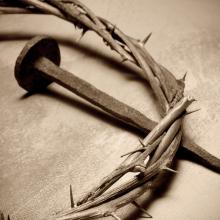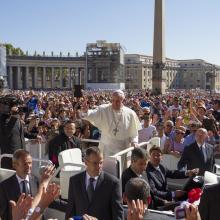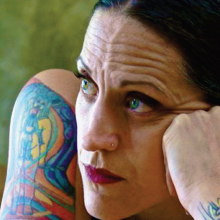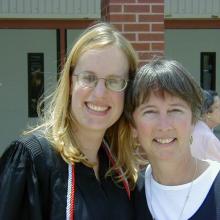God
“I knew from the beginning that as a woman, an older woman, in a group of ministers who are accustomed to having women largely as supporters, there was no place for me to come into a leadership role. The competition wasn’t worth it.”
These are the words Ella Baker spoke regarding her decision to leave the Southern Christian Leadership Conference, SCLC, in 1958. Baker was one of the core founders of this organization. Yet, her male colleagues only recognized her competence and expertise to a limit. The “preacher’s club” selected Rev. Wyatt Tee Walker to replace Baker at the helm. Due to this prevailing patriarchy and what she deemed a focus on “mass rallies and grand exhortations by ministers without follow-up,” Baker left the SCLC. She chose to go her own womanly way.
We make decisions every day. Life’s twenty-four-hour cycle is filled with choices. We contemplate what we will wear. We ponder breakfast selections. Will it be the bagel with cream cheese or a caramel macchiato with soy? Should I watch Mad Men, Scandal, or go to bed early? Do I call or just send a text or email? Our daily lives are replete with routine choices.
However, beyond these commonplace decisions are those personal, communal, and national selections that will have an impact on our lives years from now.
Last year, I wrote about my journey from forcing joy to finding that love is what is everlasting, not joy — that we sometimes hear and believe that Jesus only lives in the places of our lives where we recognize him with joy. But that that is not true.
And so, almost as an afterthought, I've been thinking lately of other ideals that Christians hold as truth, somehow in the process giving a lifeless principle more weight than a Living Christ who reveals himself beyond what can be wrapped up with words and smacked with a theological bow.
Like the concept of Presence.
We know and rest our restless hearts in the idea that Jesus is with us always, lo, even unto the very end of the age. A God who never leaves us or forsakes us. And this is good. We sing songs and pray prayers and feel goose bumps and know that it is true … at least in those moments.
But what about the God who seems to be known by God’s absence as much as by God’s presence? What happens when we don't feel God’s proximity uninterrupted?
I had the idea for this blog post a couple weeks ago, but I thought it best to wait until around this time to release it. Just two weeks into the new year, this is usually the stage in which people are slowly becoming less committed to their resolutions.
I know there is much disdain for the phrase "new year, new me." We all have family and friends who commit themselves to something on January 1st, whether it be to exercise more, eat healthier, become a better Christian, etc., and just days into the new year they have already failed to live out those commitments. The phrase probably should be "new year, same old me." This post is not intended to stroke the ego of our skeptics, rather, Lord willing, it will serve as encouragement to those who strive to better themselves.
Although we struggle to stay faithful to our new found endeavors, thankfully we serve a God who is both patient and forgiving. Psalm 86:15 states, "But you, O Lord, are a God merciful and gracious, slow to anger and abounding in steadfast love and faithfulness."
I’ll be upfront and admit it. When I heard about the chemical spill that shut down the water supply for 300,000 of my fellow West Virginians, I felt an odd tug of relief. “Maybe now something will get straightened out,” I thought to myself.
Sure, what I felt might sound callously unfeeling. After all, the chemical spill closed down businesses and schools, shut down bathing, and reduced populations to scrapping for potable water. Happily, thousands of neighbors and outliers pitched in to deliver water from bottles to tankers to the beleaguered people.
Welcome, world, to West Virginia, your national energy sacrifice state. Our state has a king — name’s Coal. Just as in Nebuchadnezzar’s era (Daniel 3), on cue politicians, business people, and media outlets bow their knee to King Coal lest their fates be a metaphorical fiery furnace.
Before readers think I’m off-track, let me first back up.
(Editor's Note: This post was adapted from the author's speech at the Christianity 21 Conference in Denver.)
When I was in seminary, one of my best friends came up with a brilliant theological … pick up line:
"Hey, baby. What’s your hermeneutic?"
Despite the genius of that question, we soon discovered that anytime you start a pick up line with “Hey, baby” you’re in some trouble.
But it’s such a great question. Think of all the relationships that would have avoided painful break ups if they just defined the relationship in the beginning by answering the question “What’s your hermeneutic?"
Sojourners campaigns assistant Anna Hall posted a great piece last week de-bunking 5 myths about the minimum wage. One of these myths — that most minimum wage workers are suburban teenagers — was countered by the facts: nearly two-thirds of minimum wage workers are adult women.
Don’t think of a suburban teenager — think of a single mother working full time while trying to raise her children, care for her family, and make enough to pay rent, probably without any paid sick or personal days (not to mention maternity leave). Could you do that on $15,000 a year?
On Jan. 13, Maria Shriver – who, in addition to her many accomplishments, is the daughter of the statesman widely regarded as the architect of the “War on Poverty” — released a report focusing on the needs of women in the current economy.
Author’s note: If you know me, you’d know that that I think the most important thing (of the things we worship ) is Jesus. And you’d also know that I love Arrested Development, with almost the same type of devotion I typically reserve for God. As a former “professional church lady,” crafting prayers was right in my wheelhouse. So I’ve composed a psalm entirely out of Arrested Development quotes based on the ACTS style of prayer, because it is right, and a good and joyful thing, always and everywhere to give thanks to God. And also … not Aunt Lindsay’s nose.
Oh God. (AD 2:13)
I love you. (AD 1:7)
We all must seek forgiveness. I’ve always tried to lead a clean life. My brother and I were like those Biblical brothers, Gallant and, um … Goofuth. (AD 2:14)
Can you imagine? I am now three score plus 10! According to measurements used during biblical times, a "score" was 20 years. Three score is 60 years. So three score plus ten, makes me 70. Moses put is this way in Psalms 90: "Seventy years are given to us! Some even live to eighty. But even the best years are filled with pain and trouble; soon they disappear, and we fly away." Well, I am not quite ready to fly away!
When I was a child, a 70-year-old person was truly ancient; like, really, really old. I imagined they were almost as old as dirt, salt, or the oldest Bible character, Methuselah. In my child's mind, 70 was too old to move fast, think hard, feel deeply, laugh out loud, dance gracefully, exercise intensely, and experience joy. Mostly, 70 year olds were just waiting to die. Right? Of course, they were definitely too advanced in years to think, feel, or act sexually, even though researchers say otherwise.
What is so amazing is that I feel many times better today than I felt at 60, 50, or even 40. 70 really IS the new 50!
I’ve been thinking about what it means to be chosen, and conversely how we choose to be chosen. I’ve also been thinking about life, death, choices, and what happens to us after our earthly body dies. Do we remember who we are here? Do we remember our friends, lovers, enemies, acquaintances? Do we remember events, important moments, unimportant moments, or forgotten moments? I believe we do. The problem is that all we know and have experienced about the Divine is limited by our own thoughts and words.
Way back in the day (circa 2004), Switchfoot's lead singer, Jon Foreman, was asked if the band is a “Christian” band. Even though it's been a while, his response is worth looking at again.
Autumn in Berkeley is not what lovers of changing seasons might recognize as autumn, but it is upon us no less. Days are are shorter. Television programming has changed. The air is a little crisper. The currents in the Pacific have shifted and that great body of water tinkers with our meteorological hopes somewhat differently every day. The leaves don't change so much as drop. And, as usual, there are flowers in bloom.
As someone who loves the northeast coast change of seasons, I find it challenging to unravel my expectations from reality. I find the two so intertwined that I may be tempted to try to change my environment to suit my expectations rather than paying attention to what is actually going on in the world around me.
I am reminded of my neighbors who will be spraying fauxsnow on their windows to celebrate the winter holidays. "It's just not Christmas without snow," some will proclaim. This is an obvious example of what it may look like to insist on our expectations being met all the while our world around us is trying to show us something different. We literally paint the windows to the world around us so we see what we want to see.
We push our environment around and in the process run the risk of missing the grace being offered up in new and rich ways.
Pope Francis has once again given a startlingly candid interview that reinforces his vision of a Catholic Church that engages the world and helps the poor rather than pursuing culture wars, and one “that is not just top-down but also horizontal.”
The pope’s conversation with Eugenio Scalfari, an atheist and well-known editor of the Italian newspaper La Repubblica, took place at the pope’s residence in the Vatican guesthouse on Sept. 24 and was published on Tuesday.
His newest bombshell come just two weeks after the publication of the pope’s lengthy, groundbreaking interview with a Jesuit journalist in which Francis said the church was “obsessed” with a few moral issues, like abortion and homosexuality, and needed an “attitude” adjustment if it hopes to strike a “new balance” in its approach to the wider world.
DURING MY EARLY years of sobriety, I spent most Monday nights in a smoke-filled parish hall with some friends who were also sober alcoholics, drinking bad coffee. Pictures of the Virgin Mary looked down on us, as prayer and despair and cigarette smoke and hope rose to the ceiling. We were a cranky bunch whose lives were in various states of repair. There was Candace, a suburban housewife who was high on heroin for her debutante ball; Stan the depressive poet, self-deprecating and soulful; and Bob the retired lawyer who had been sober since before Jesus was born, but for some reason still looked a little bit homeless.
We talked about God and anger, resentment and forgiveness—all punctuated with profanity. We weren’t a ship of fools so much as a rowboat of idiots. A little rowing team, paddling furiously, sometimes for each other, sometimes for ourselves; and when one of us jumped ship, we’d all have to paddle harder.
In 1992, when I started hanging out with the “rowing team,” as I began to call them, I was working at a downtown club as a standup comic. I was broken and trying to become fixed and only a few months sober. I couldn’t afford therapy, so being paid to be caustic and cynical on stage seemed the next best thing. Plus, I’m funny when I’m miserable.
This isn’t exactly uncommon. If you were to gather all the world’s comics and then remove all the alcoholics, cocaine addicts, and manic depressives you’d have left ... well ... Carrot Top, basically. There’s something about courting the darkness that makes some people see the truth in raw, twisted ways, as though they were shining a black light on life to illuminate the absurdity of it all. Comics tell a truth you can see only from the underside of the psyche.
Sarah Decareaux was lying on the cold, concrete floor of a barn.
She closed her eyes, curled her knees into her chest, and told herself that what was happening wasn’t real.
She felt claustrophobic. She was having trouble breathing. Her vision tunneled, the same way it had when she’d been in labor. She could see only a few feet in front of her.
For more than 100 years, Britain’s Girl Guides took an oath to “love God and serve the King/Queen.”
But on Wednesday the movement announced it would scrap its oath to God in an attempt to broaden its appeal and attract children from secular, nonbelieving families.
The controversial shake-up is seen by some as the biggest in the Girl Guides’ history.
On the day after the Indianapolis 500-mile race, I wonder why the self-proclaimed “Greatest Spectacle in Racing” matters so much to me.
It isn’t a nostalgia trip to my growing-up days in Indianapolis. Indiana high school basketball mattered far more to me at the time, but I can barely raise a flicker of interest in it now.
It isn’t deep association with the sport. I recognize only a few of the drivers’ names and know less and less about the technology on display — 33 open-wheeled race cars driving 500 miles at speeds exceeding 220 mph. I care nothing at all about attempts to turn one race into a national franchise.
Nor am I tracing a link to my hometown roots. For me, Indianapolis is about family, not racing.
No, I think it’s the race itself. The 500 is pure experience, unapologetic, radically open to anyone who can try, and yet limited to a small circle of men and women who can do it well.
Yesterday Kay Stewart shared this at the cemetery as we laid to rest the ashes of her first-born daughter Katherine (“Katie”).
For Christ to have gone before us,
To have kept us from ultimate sadness,
To be our brother, our advocate,
The One who ushers in the Kingdom,
Here
And the One to come,
Does not keep us from our digging today.
We still gather here and throw the dirt on our sacred dust,
We take the shovel like all those gone before us
And surrender to the Unknowable—
The place where
Love and Beauty and Kindness grow wild.
Where sorrow has no needs,
Where there is all beginning and
Nothing ends.
...
"God doesn't just hate what you do. God hates who you are." — A Well-Known Contemporary Preacher
What this pastor says above, as well as much of what he says in the sermon from which this line is taken, comes from reading the Bible as if every sentence in it can and should be read as bearing the same weight as all others when we answer the question: "Who is God?"
When we read the Bible with the first Christians we begin to understand that the way they read these texts is not the way an uber-rationalist modern reads them.
Since Jesus himself was the one who taught the apostles to read the Old Testament, the way the churches they founded read the Bible is important for us, too.
God never was only the words he utters, or the ones we utter about God — just like we are never the sum total of everything we have spoken or what has been spoken of us. There is so much more to the mystery of any person than mere words; how much more so the mystery of the divine persons.
Uncertainty about the existence of God is not the same thing as certainty about the non-existence of God.
I’ve enjoyed taking part in the “Subverting the Norm” conference this weekend with many of the forefront thinkers in what has been called “Radical Theology.” Although the word “radical” has sensationalist connotations for lots of people, it really just means a theology that isn’t firmly rooted. I know that in itself sounds scary to some folks, but the radical theology camp might suggest that fear stems from an addiction to certainty.
(The Controversial figure Rob Bell has created another firestorm with his latest provocative book What We Talk About When We Talk About God. Raven Foundation Education Director, Adam Ericksen and Tripp Hudgins will share our thoughts on the book in this blogalogue. We invite you to join the discussion by leaving a comment.)
Sadly, this is our last post on Rob’s book What We Talk About When We Talk About God. As Tripp Hudgins stated, my previous post was a lengthy missive, and yet I feel like we have just scratched the surface of this book. I promise to make this concluding post shorter, but I’m tempted to inflict upon you the longest post ever! because there is so much in these final 30 pages.
I noticed that we haven’t made a list yet, and every blogalogue needs a list! So, to keep this from becoming the longest post ever!, I offer you the top 3 reason that Rob Bell matters.


















